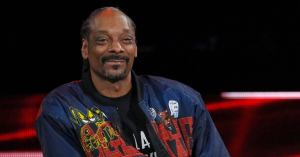Greyson Chance says he was subjected to “manipulative, self-centered, and opportunistic” behavior from the woman who he believed would help him become a child star: Ellen DeGeneres. Chance is speaking out about his relationship with DeGeneres in Rolling Stone, revealing how he rejected an opportunity to appear on her show in its final weeks due to her allegedly “insanely manipulative” actions and then “completely abandoned” him later on.
The now-25-year-old piano prodigy turned pop singer was just 12 when he got his big break. In 2010, the sixth grader sang Lady Gaga’s “Paparazzi” to his classmates, unaware that the video would go viral and that he would meet DeGeneres a week later. Upon flying Chance to LA, DeGeneres bought him a new piano and signed him as the first artist on her record label eleveneleven, which she co-created to launch his career as a musician. Nevertheless, Chance told Rolling Stone that the talk show host offered stability and guidance as a mentor and guardian to him and his mother, who was unfamiliar with the world of show business.
Videos by PopCulture.com
However, he said that DeGeneres became a “hidden eye” in his career and life, watching over every detail. “My whole week, my whole month, my whole year could change [with] one text message from her,” Chance said. “That was horrible.” He added, “If she had an opinion of any sort, the whole thing changed.” According to Chance, DeGeneres controlled his recording and touring schedules, what he watched, and even his clothing. “She would come in and look at a rack, yell at stylists, berate people in front of me and say, ‘This is what you’re wearing on the show,’” he recalled. “She was just degrading to people.”
In addition to making him re-tape an already-done TV performance, DeGeneres once ordered him to watch the Justin Bieber documentary Never Say Never on a hectic tour and even forbade him to wear leather since she was vegan. “It was clear that, ‘Okay, I’m a pawn in your game,’” he said. DeGeneres previously faced accusations of being a toxic boss to the crew on Ellen.
He claimed that DeGeneres “completely removed” herself from his career when his second record on her label underperformed, Truth Be Told, Part 1. She didn’t answer Chance’s calls, and when he did appear on her show, she barely spoke to him. “I couldn’t get a hold of her. Couldn’t talk to her,” the singer-songwriter told the magazine. “Whenever I would come on the show, it was such a fake smile. She wouldn’t even ask, ‘How are you doing? How are you holding up?’ It was just like, ‘Here’s what we’re going to talk about. We’ll see you on there.’”
Chance said he again felt used by DeGeneres when he returned to her show in 2019. She expressed her pride in Chance for coming out two years earlier during the interview. “She had nothing to do with that. … [When I came out,] I hadn’t spoken to her in years,” Chance said. “That’s so messed up, that you’re now showing the world as if we’re so tight. We’re so good. And behind the scenes, you are this insanely manipulative person.”
“When I look at the interviews and I look at my eyes, I can see so much anxiety. I can just see so much PTSD because I’m there holding on for dear life going, ‘I need this TV gig,’” Chance added. “I was 100 percent faking it, and [I felt like] she’s 100 percent faking it with me, too.” Chance vowed never again to appear on her show. His resolve was tested when she offered him a spot on one of the show’s final episodes.
Eventually, he said The Ellen DeGeneres Show set had become an “active trauma for me,” he passed on the appearance and opportunity to promote his new album Palladium. “I couldn’t do that,” he said. “So I turned down a national-TV gig on the eve of an album release, which is probably not a smart thing to do, but I had to do it for my integrity.” Chance still acknowledges DeGeneres for launching his career in the early days, but he says he owes “f– nothing to her” now. “I was the one that had to pull myself up,” he said. “She was nowhere to be found.”








